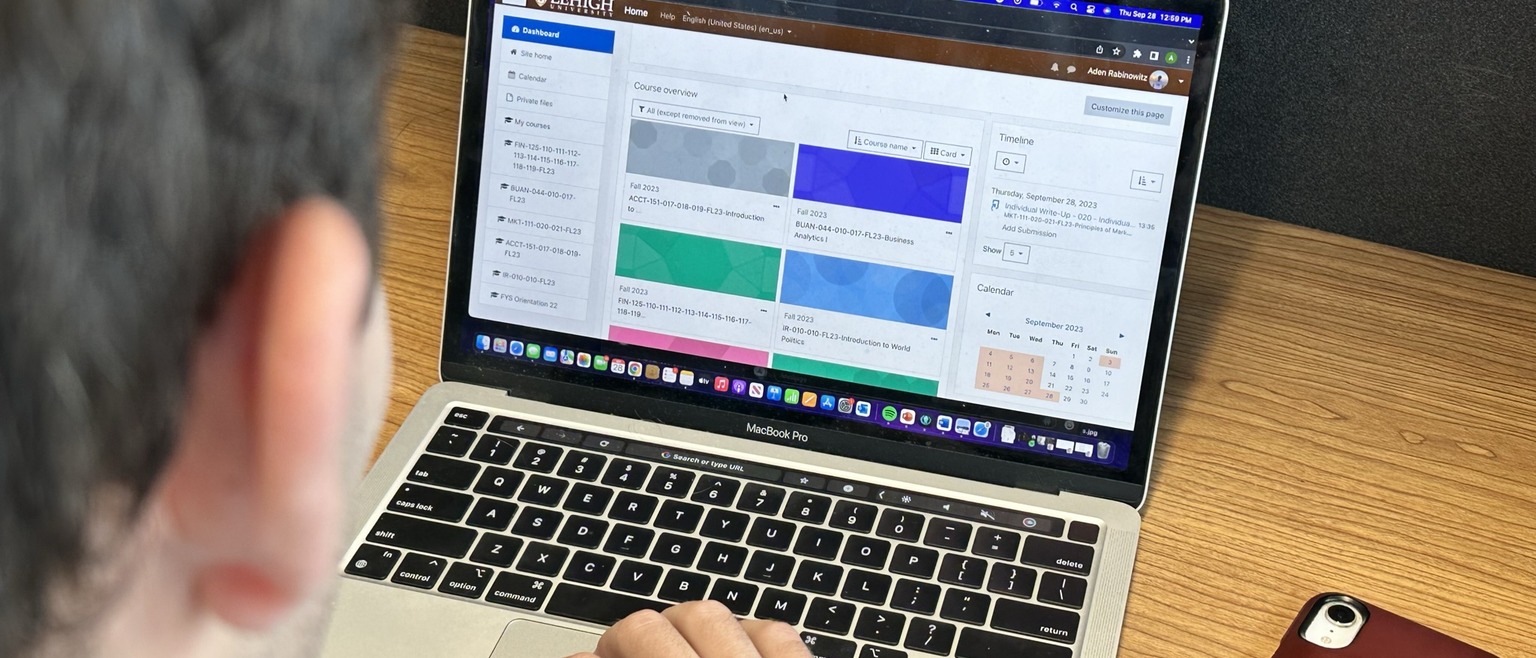LTS regularly researches and reviews emerging educational technologies. We test, review, gather feedback from faculty and students, and make recommendations about which technologies to adopt on a wider scale based on this research. We strive to provide up-to-date and effective technologies to improve the learning experience and support student learning outcomes.
Our key considerations include:
Meeting teaching goals: How well does the technology support effective instruction?
Usability: Is the technology easy for instructors and students to use?
Accessibility: Can all users access and benefit from the technology?
Support: Are resources available to help instructors and students use the technology successfully?
Redundancy: Do we already fund and support a tool that performs the same or similar functions?
Privacy and Security: Is the tool FERPA compliant and is our data secure?
Value: Is the technology worth the cost?
Course Site Upgrade Roadmap
Beginning Winter 2025, the instructional technology team will upgrade Course Site from Moodle 4.5 to Moodle 5.1. This upgrade will include several enhancements.
- Updated purpose-based categories for adding activities and resources to your course.
- Activities tab in the main horizontal navigation bar at the top of your courses listing every active task in the course in one view.
- The ability to add subsections to better organize course content within a topic.
- A new rich text editor called TinyMCE.
- A new Zoom Integration that allows you to create and share Zoom meetings within Course Site.
- A new Panopto integration that allows embedded quiz grades to pass to Course Site gradebook.
After Course Site is updated for Winter and Spring courses, we will begin an evaluation of the AI subsystem available in Moodle 5.1.
Recent Evaluation Projects
In 2023, the CITL Instructional Technology Team evaluated and tested three Learning Management Systems (LMS): Canvas, Brightspace, and Moodle v4.0. Based on the final overall rankings using standardized evaluation processes and rubrics in the three LMS environments, Moodle (Course Site) was determined to be the LMS that best aligns with Lehigh's teaching and learning environment.
Subsequent to this benchmarking effort, the team upgraded from Moodle 3.11 to Moodle 4.1 as our production LMS. This effort included piloting the new version during Summer 2023, providing pre-migration training during the Fall 2023 semester, updating existing and creating new documentation, online training and drop-in sessions for faculty as part of the CITL 2024 Winter Workshop, and post-migration consultations with faculty on an as-requested basis.
Gradescope was piloted in 2022 and adopted in 2023, and was a collaboration with the Math department which was looking for a less labor-intensive way to collect and grade handwritten work. Gradescope was integrated into Course Site allowing grades to be easily communicated and written work to be quickly digitized by either the student or the professor. Gradescope is now used by several departments and is particularly useful for large classes to review student work anonymously, by problem collections, regrade all at once, and standardize feedback and rubrics among graders. Gradescope also provides a self-grading solution for bubble test sheets.
Faculty wanted to engage students in large lectures, and needed a solution that allowed for more participation and gave them real-time feedback from students. LTS evaluated many polling tools, including Socrative, Slido, Kahoot, Mentimeter, Course Site built-in functionality, and Google Forms. We reviewed tools for maximum audience size, ability to log in with Lehigh credentials, ease of use with a mobile device, responsiveness, response feedback, total cost, and integration with presentation software. Poll Everywhere allows us to extend licenses for academic uses and has been an essential tool in promoting engagement in large lectures.
There currently is not an LTS-supported lockdown browser. We did use Responus Lock-down during the pandemic but found that the cost, lack of strong vendor support, and recurring technical issues for students were not sustainable. As an alternative, we can offer the following resources related to promoting academic integrity in assessments, including ideas for assessment creation and recommended quiz settings:
- Online Assessment Best Practices
- Best Practices for Course Site Quizzes: Promoting Learning while Maintaining Academic Integrity: Best Practices for Course Site Quizzes: Promoting Learning while Maintaining Academic Integrity
- Another option could be discussing proctored exam options with the Testing Center. More information on proctored exams is available here: How to Request a Proctored Exam | Student Affairs
We have researched some new tools, such as HonorLock, Octoproctor, and Trifecta, to serve this purpose, but have not found a solution.
Google Jamboards have been widely adopted in classrooms and Zoom sessions as an interactive collaborative tool, but Google has stopped supporting this tool. LTS is researching and testing alternatives such as Zoom whiteboards, Figjam, Miro, and Microsoft whiteboards.
During the 2023 spring and fall semesters, instructors had access to the Turnitin AI detection tool as part of the university's ongoing license. Beginning in the spring of 2024, Turnitin required a separate license to access this AI detection functionality. LTS evaluated Turnitin’s AI content checker, was wary of false positives, and decided not to pursue the add-on. We are actively monitoring and researching the efficacy of AI detection tools, most recently Copyleaks, and will continue to reevaluate them as improvements are made.
CITL has been piloting a tool called FrameVR. FrameVR is a free web-based platform for creating and collaborating in custom 3D environments accessible across multiple devices. Students can build and curate immersive worlds using templates, ready-made avatars and an extensive library of objects and tools, lessening the technical expertise required to develop VR-ready experiences. FrameVR is also AI-native meaning integrated generative can be utilized to create images, videos, 3D models, and more on the fly to boost creativity and ideation.
